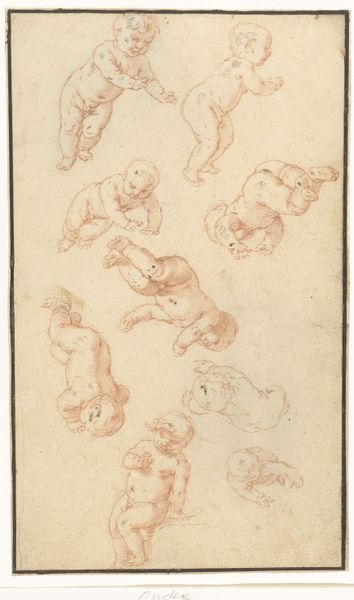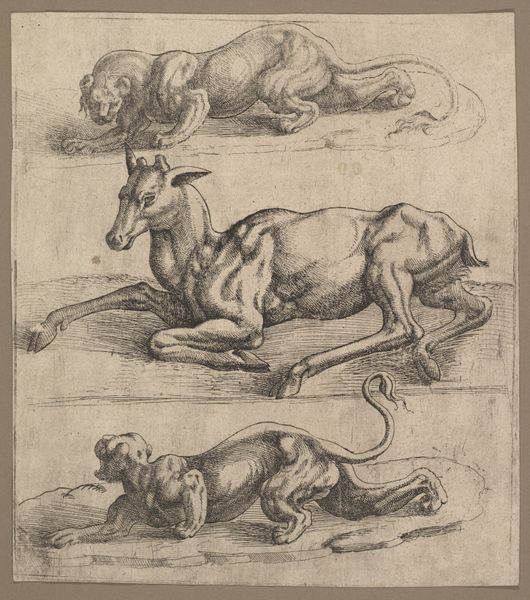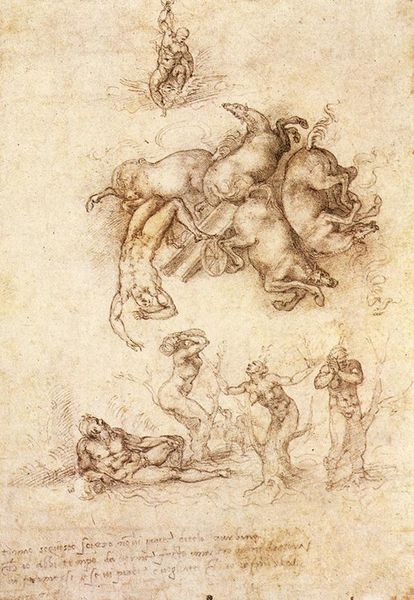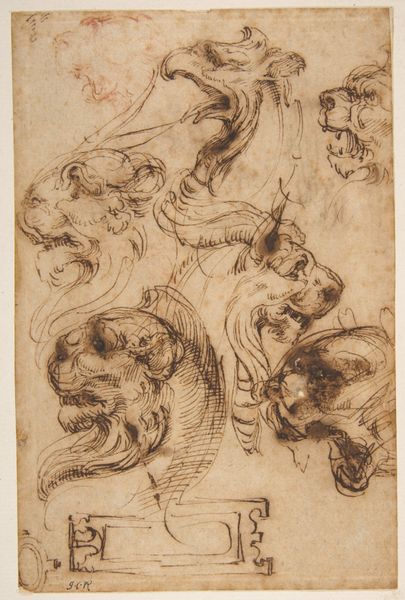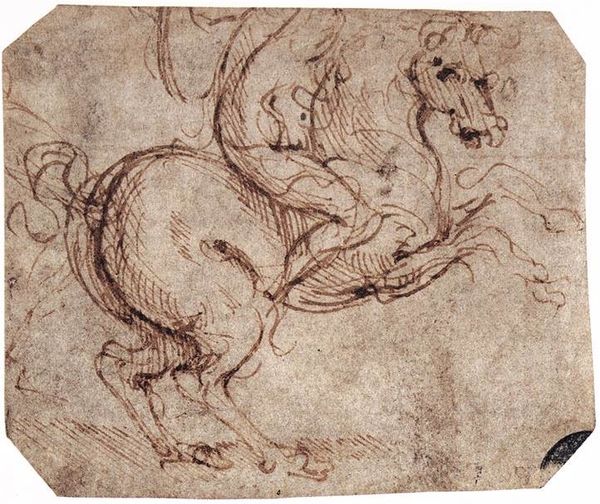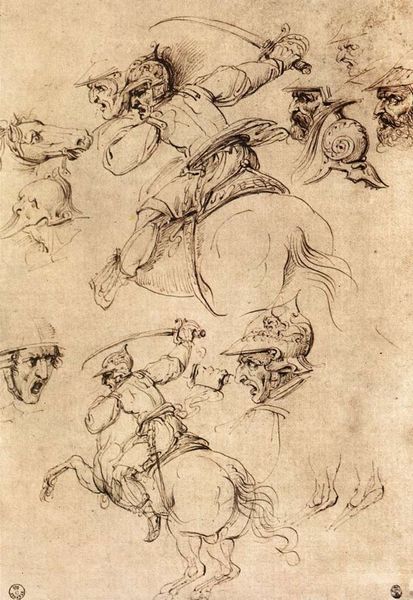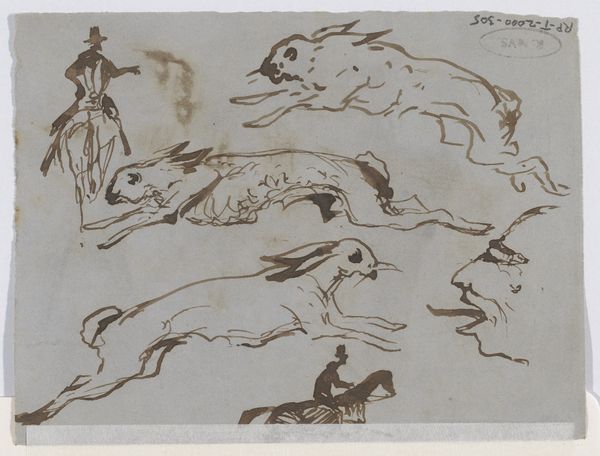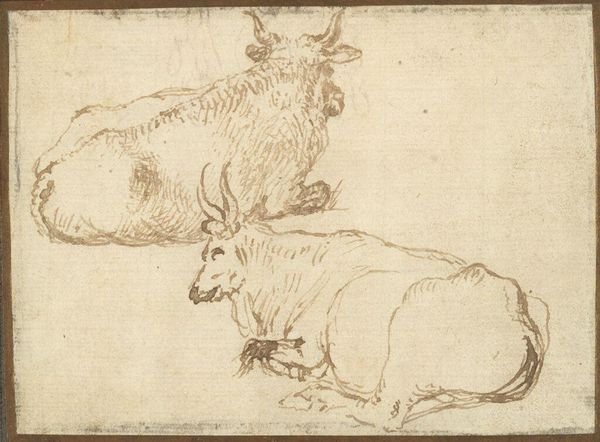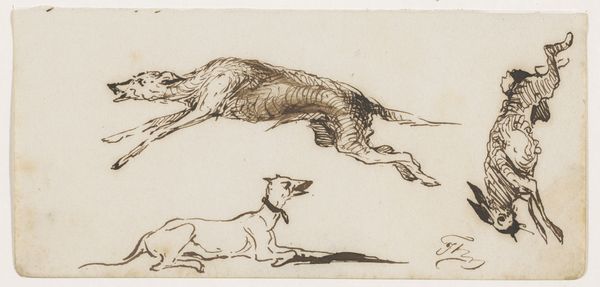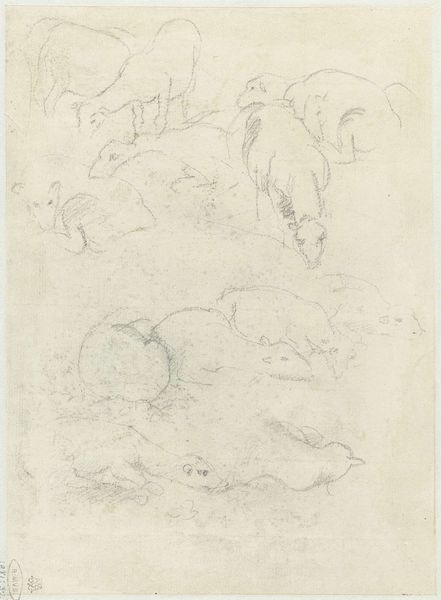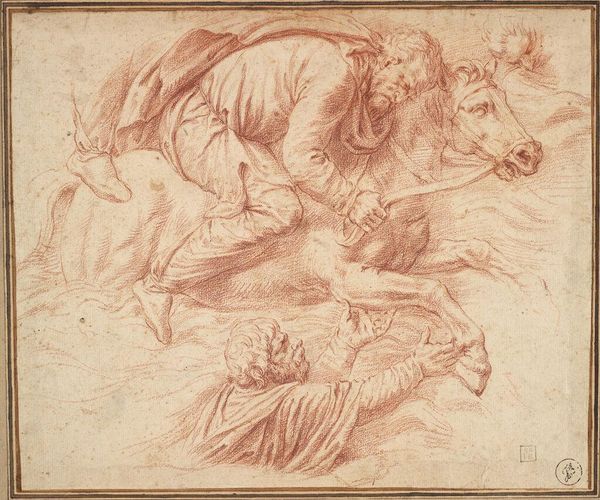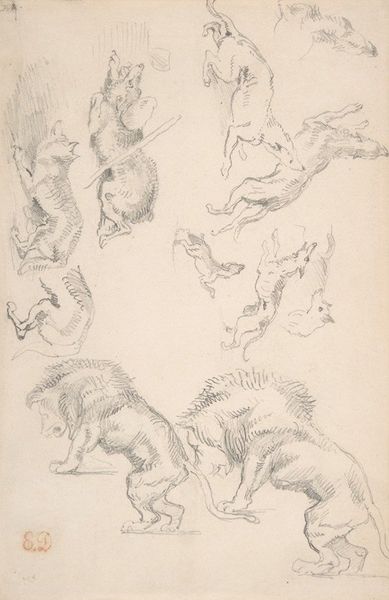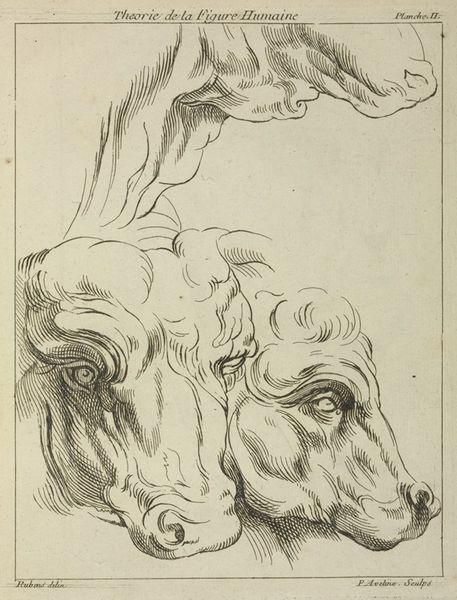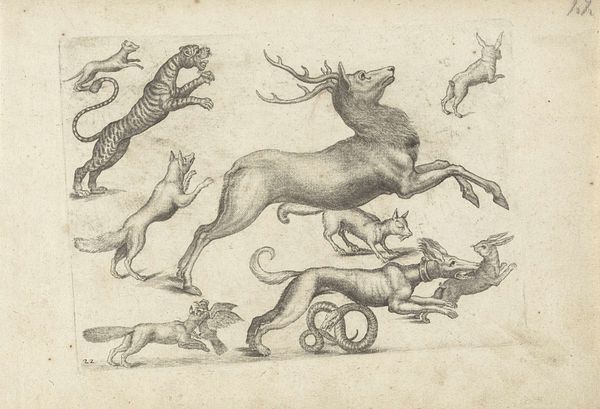
drawing, print, paper, chalk, charcoal
#
drawing
#
animal
# print
#
pencil sketch
#
dog
#
paper
#
chalk
#
sketchbook drawing
#
pencil work
#
charcoal
#
realism
Dimensions: 227 × 176 mm
Copyright: Public Domain
Editor: This drawing, "Sketches of Romping Dogs," is by Abraham Hondius, date unknown. It's rendered in chalk, charcoal, and pencil on paper and currently resides at the Art Institute of Chicago. I am struck by how dynamic the composition is despite its simplicity. What elements do you find most compelling about this piece? Curator: The interest, for me, resides precisely in that dynamism you observed. Hondius skillfully captures movement through the manipulation of line and form. Note the varying weights of the lines, creating depth and suggesting the dogs’ energy. Consider, too, how the artist uses cross-hatching to model the forms, defining their musculature and giving them a sense of volume on a flat surface. What do you observe about the orientation of the dogs within the pictorial space? Editor: It looks as though the artist captures a variety of poses; different positions create rhythm and imply a passage of time or a burst of action. Do you see this composition as preparatory or is it complete in itself? Curator: The drawing functions as a study. Note, for instance, that anatomical details are more carefully delineated in certain figures than others. The negative space is active; rather than a void, the blank paper articulates volume and dimension, allowing the artist to explore relations between solid form and atmospheric presence. A detail such as this invites reflection. Editor: So it’s the intentional incompleteness that makes it so intriguing from a formal perspective? Curator: Precisely. The inherent qualities of line, texture, and the distribution of mass coalesce into something evocative. Editor: I now see how Hondius uses these dogs' poses and rendering styles to capture the dynamics of their movements. It goes beyond mere representation. Curator: Yes, the study is the artwork. Understanding its constituent elements allows us to discern its impact, appreciate its form, and appreciate the hand of the artist.
Comments
No comments
Be the first to comment and join the conversation on the ultimate creative platform.
